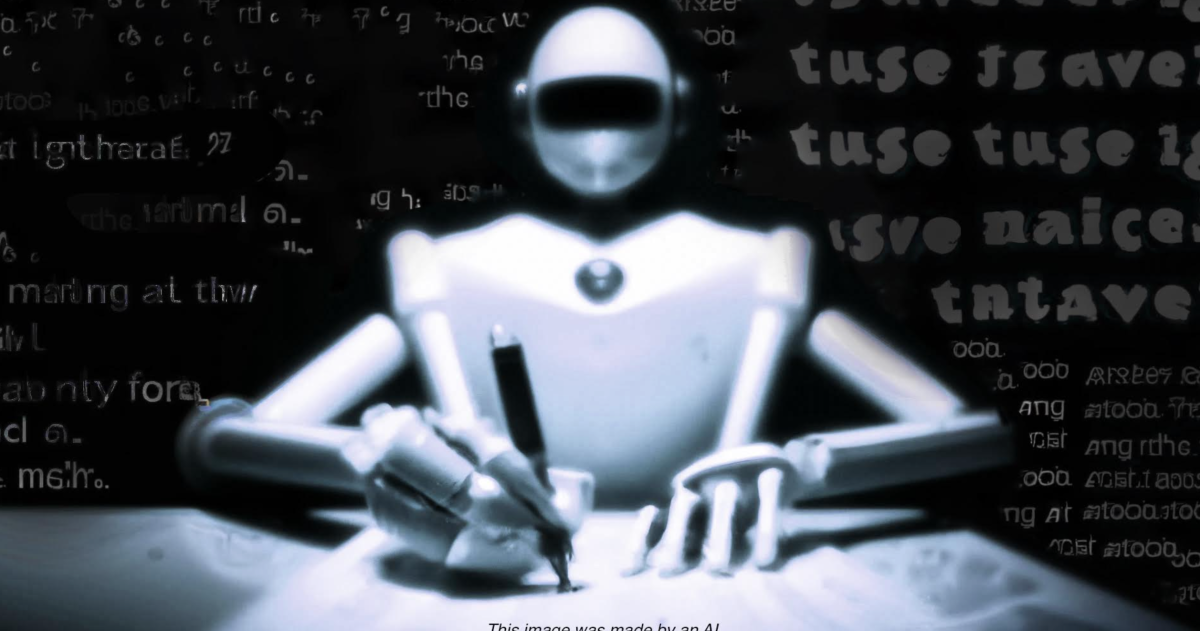ChatGPT, an artificially intelligent chatbot created by OpenAI, has sparked discussion and debates among educators about its potential uses and implications in the field of education and whether its use constitutes academic dishonesty.
“ChatGPT is a large language model developed by OpenAI,” ChatGPT responded when prompted to describe itself. “It is trained on a dataset of conversational text and is designed to generate human-like responses to text-based prompts. It can be used for tasks such as language translation, text summarization, question answering and text generation.”
Thomas Hardiman, director of Student Conduct, said ChatGPT can be a very useful tool if used correctly, with some professors at NC State expressing interest in using the program in their curricula in the future.
“I anticipate that in the years to come, you are going to see certain disciplines train their students on how to use [ChatGPT] effectively because it is going to be a tool that is used in that discipline and in that professional world,” Hardiman said.
ChatGPT can be used to generate anything from essays to lines of code. By detecting patterns from thousands of examples on the internet, ChatGPT produces professional, near-perfect results. Hardiman said it’s too perfect.
“Sometimes you’re going to see deviations in what just normal human writing is,” Hardiman said. “You can tell this is like a computer-generated thing because it’s stylistic. There’s a stock style that comes off; it’s just not human about it. Whether it’s dry, whether it is somewhat robotic.
Henry Schaffer, professor emeritus in genetics and biomathematics and former coordinator of special IT projects at NC State, said he has been working and keeping up with new innovations in the fields of computing and the internet ever since the internet was first invented. He said he has used ChatGPT as a tool to quickly learn subjects from different sources without repeating the same information.
Due to ChatGPT’s ease of use and free accessibility, some of the largest school districts across the country have banned it for the opportunity it presents students to let it do classwork for them, according to Chalkbeat. In terms of academic dishonesty when using the program, Hardiman said the University has no intention of banning the program, and instead is letting professors decide whether it can be used or not in their classes.
“When we talk to faculty members, it’s not the use of plagiarism software that ticks them off or alerts them to say, ‘Hey, this looks like the student plagiarized,’ or, ‘They copied,’ or something like that,” Hardiman said. “Generally speaking, when they’re reading through a student’s paper, they’re like, ‘this doesn’t sound right. I’ve read the student’s other work. This doesn’t sound like them.’”
Schaffer said ChatGPT raises many questions that push the boundaries of what plagiarism is known as.
“I asked a group of faculty if I copy 100 sentences sequentially out of somebody’s work, if that’s plagiarism — yes,” Schaffer said. “If I have 100 books in front of me, and I copy one sentence out of each book and put them, and that’s my essay, is that plagiarism? And people said, ‘Ah, I’m not sure.’ Well, if I copy two to four-word phrases out of 10,000 books, is that plagiarism?”
When prompted to use the program for the first time, Matthew Watson, a second-year studying agricultural business, asked ChatGPT to write a rap song about his life.
“Well, I’ve never heard of it before, but it is kind of mind blowing that–I mean, it’s still writing out like we’re on the fourth verse now,” Watson said. “I definitely feel like it’d be plagiarism just because they’re taking the information from the internet somewhere, and you’re not citing it.”
Schaffer said other new developments in technology that are widely used now have also garnered negative attention in the past, such as spell-checkers that are built-in to programs like Google Docs.
Hardiman said using ChatGPT for the purpose of letting the program complete assignments is not only going to be obvious in some cases but detrimental to the value students get out of college.
“At the end of the day, you’re paying money to come to NC State,” Hardiman said. “At the end of this experience, the goal is to earn a degree to say that you’ve demonstrated proficiency in whatever discipline and that you should be able to go off and utilize this now and [in] whatever workforce environment you want. The goal should be to actually learn the material. So we often share that if you’re using these—any of these are engaging in any acts of cheating—first and foremost, the primary person you’re cheating is yourself.”













